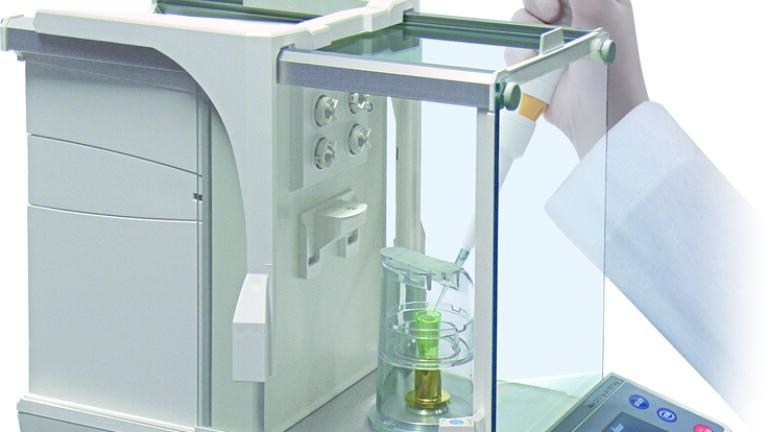
Pipettes
As many people do, you may have your pipettes inspected and calibrated regularly by an outside facility – once a year, or perhaps twice a year, depending on your workplace policies. But imagine what would happen to a year’s worth of data when, say, an annual calibration showed that you might have been using inaccurate pipettes all along.
Today, what with Good Laboratory Practice (GLP) and other quality assurance regulations/guidelines, researchers are in increasing need of sustainable ways to internally manage the accuracy of their pipettes. The problem is, however, that many of them would be at a loss as to what exactly they should put into actual practice. Wouldn’t you too?
Not to worry, though. As a solution, A&D provides two kinds of devices that you can use to introduce a simple, viable standard operating procedure (SOP) for managing pipettes.
Daily check
The first of the two is the AD-1690 leak tester. Most pipette failures occur due to degraded lower parts like the o-ring, piston and tip holder compromising the pipette’s air tightness. By depressurising inside the pipette, the AD-1690 can determine whether an air leak exists in a matter of seconds, allowing you to quickly sort out troubled pipettes.
For everyday inspection, this leak test along with some quick appearance and function checkups will probably suffice for most users.
Periodic check
In addition to the above, you are advised to inspect the pipettes’ actual performance from time to time. For that purpose, a series of pipette accuracy testers (AD-4212B-PT, AD-4212A-PT and FX-300i-PT), or the BM series of micro analytical balances with their optional pipette accuracy testing kit (BM-014), are useful. The test procedure follows the gravimetric method as recommended by ISO8655.
With the special ‘WinCT-Pipette’ software, these testers perform mass-to-volume conversions and make accuracy and repeatability judgments based on the criteria you set all automatically for you. They are also equipped with an evaporation trap, which maintains high humidity inside and thereby prevents the evaporation of the test liquid that causes measurement errors.
For documentation requirements, the test results and other relevant information can be printed out in a report format with just one click.
Dispensing volume correction
Now, supposing that some of your pipettes have been found inaccurate by your periodic check, what should you do? Send them for readjustment? Or try a confusing do-it-yourself readjustment method if that is made available by the manufacturer? The former is costly and the latter is not so easy. And both are time-consuming, aren’t they.
If you use the MPA series of electronic pipettes recently released by A&D, it is easy to readjust the dispensing volume by yourself, as all you have to do is simply input the correct value measured by a pipette accuracy tester into the pipette.
With the MPA series and the two above-mentioned devices, you will be assured of not only the quality of your pipettes but also the means to maintain and account for that quality whenever required!
Please contact A&D for more detailed information on each product.